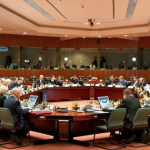To ensure that the EU meets its objectives for a digital transformation in line with EU values, member states last Thrusday agreed on a negotiating mandate for the 2030 policy programme ‘Path to the Digital Decade’.
This text aims to strengthen the EU’s digital leadership by promoting inclusive and sustainable digital policies that serve citizens and businesses. To this end, it sets out the concrete digital targets, including for industry which the Union as a whole must achieve by the end of the decade and a novel form of governance with the member states, through a mechanism of cooperation between the Commission and the member states to ensure that the Union jointly achieves its ambition.
Governance
The Council text changed the frequency of interactions to move to a biennial cycle of cooperation between member states and the Commission while maintaining the annual frequency of the ‘State of the Digital Decade’ report. In this regard, a stronger link with the legal basis of the decision has been established.
Alignment with other digital files
The Council text is fully in line with the Commission Communication of March 2021 on the 2030 Digital Compass and underlines the importance of fundamental rights.
Next steps
Last Thrusday´s mandate was approved by the Council’s Permanent Representative’s Committee (Coreper), so the Council presidency can start negotiations with the European Parliament as soon as the European Parliament has agreed its position.
Background
The Commission communication ‘2030 Digital Compass: the European way for the Digital Decade’ of 9 March 2021 set out a vision of the EU successfully achieving a digital transition by 2030. The EU’s ambition is to be digitally sovereign in an open and interconnected world, and to pursue digital policies that allow people and businesses to have a human centred, inclusive, sustainable and prosperous digital future.
In its conclusions of 25 March 2021, the European Council stressed the importance of the digital transformation for the Union’s recovery, prosperity, security and competitiveness and for the well-being of our societies. It identified the digital compass communication as a step towards mapping Europe’s digital development for the next decade. It called on the Commission to use all available instruments in the field of industrial, trade and competition policy. In light of these ambitions and challenges, the Commission proposed on 15 September 2021 a decision of the European Parliament and of the Council establishing the Digital Policy Programme ‘Path to the Digital Decade’.
Fuente: Press release – European Council







Leave a Reply